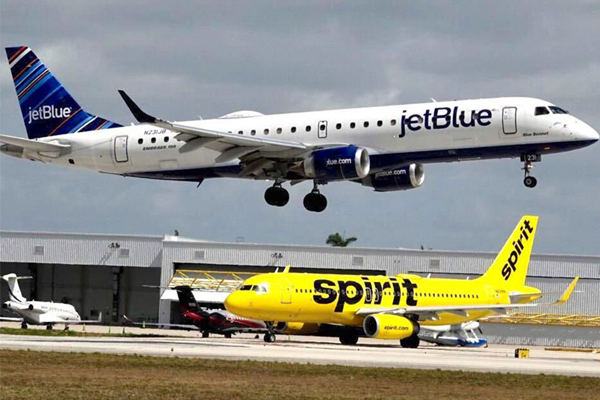
BESSEMER, Ala.—After an overwhelming defeat in the election at the Amazon warehouse here, the Retail, Wholesale and Department Store Union [RWDSU] announced it would file unfair labor-practice charges with the National Labor Relations Board, alleging that the company illegally interfered with the workers’ rights to “a free and fair election.”
The NLRB announced Apr. 9 that the vote at the facility in Bessemer, a small city about 15 miles southwest of Birmingham, had been 1,798 to 738 against representation by the RWDSU. About 500 ballots were contested, mostly by Amazon, and were not counted. The paltry yes vote contrasted with the more than 2,000 workers who had signed union-authorization cards.
“Our system is broken and Amazon took full advantage of that,” RWDSU President Stuart Applebaum said at a press conference after the results were announced. He said Amazon’s ability to hold “mandatory hour-long anti-union lectures” showed “the total failure of our laws to protect workers when they try to form a union.”
The union said it would ask the NLRB to void the election results because Amazon’s conduct “created an atmosphere of confusion, coercion, and/or fear of reprisals.”
An RWDSU spokesperson said she could not give more details because the complaint had not yet been filed. But two likely charges, Applebaum indicated, were that the company threatened that it would close the warehouse if the workers voted for the union, and that it set up a drop box for workers to mail in ballots on the property after the NLRB had denied it permission.
Having the box on the property “creates the impression of surveillance,” Applebaum said. On the job, “workers are used to having every motion they make surveilled throughout the day. Cameras are outside.”
He also claimed that the RWDSU has evidence that Amazon had used the box to “illegally harvest votes” and would present it to the NLRB. The union, he added, has also obtained emails, through a Freedom of Information Act request, that showed how much pressure the company put on the Postal Service to install the box, he added.
Another problem, Applebaum said, was that the pandemic made it much more difficult to meet with workers in person. But he averred that “it was the right moment” for the unionization effort, and that the RWDSU would continue organizing at Amazon facilities.
“The other thing we learned from this campaign is that we have to work hard for labor-law reform,” he added. “This was not a fair fight in any way.”
AFL-CIO President Richard Trumka said the results demonstrated the need for the Protecting the Right to Organize (PRO) Act, passed by the House last month but facing a near-certain Republican filibuster in the Senate. The bill would prohibit employers from holding mandatory “captive-audience meetings” to encourage opposition to the union, enable workers to choose union representation by “card check,” and increase penalties for firing union supporters.
“Americans want to organize unions, and it should never be this hard to do so,” he said. “Amazon’s outrageous behavior is only the latest reminder that our rights have been steadily eroded by a handful of powerful elites. We can’t allow this societal failure to deprive one more worker of the freedom to organize.”
Alabama AFL-CIO President Bren Riley seconded that. The vote results “show what happens when our woefully outdated labor laws allow corporations to get away with blatantly illegal union-busting activity, knowing the worst they’ll receive is a slap on the wrist,” he said in a statement. The PRO Act, he added, would be “the largest law reform since the Great Depression.”
Applebaum said he did not know how many of the 2,000-odd workers who signed union cards were still at the warehouse. Amazon’s turnover rate is more than 100% a year, he noted. In any case, under card check, the union would have had to get cards signed by more than 2,900 of the roughly 5,800 employees.
Union members tried to remain optimistic. “I need you to hear this, Jeff Bezos,” RWDSU lead organizer Mike Foster declared. “This battle has just begun.”
“I’m not discouraged. This is the beginning,” said worker Linda Burns. “Bezos, you misled a lot of our people. We’re going to fight for our rights. As human beings, not robots.”
Another tactic Amazon used, Applebaum said, was telling workers that they had to get their ballots in by March 1, when the actual deadline was March 29. Some had already voted no when they came to their first union meeting, said Foster.
He told reporters that a number of people have called him to say, “if I knew what I know now before I voted, I would have changed my vote.”
If the NLRB ordered a new election, “we would see a change in the tide now that people have the information,” worker Emitt Ashford said. “We would win.”
“In all of my years in Alabama’s labor movement,” Bren Riley said, “I have never seen such bravery…. These workers looked at one of the most powerful corporations in the world right in the eye, knowing Amazon would stop at nothing to silence them, and still fought for their right to a collective voice on the job.”



